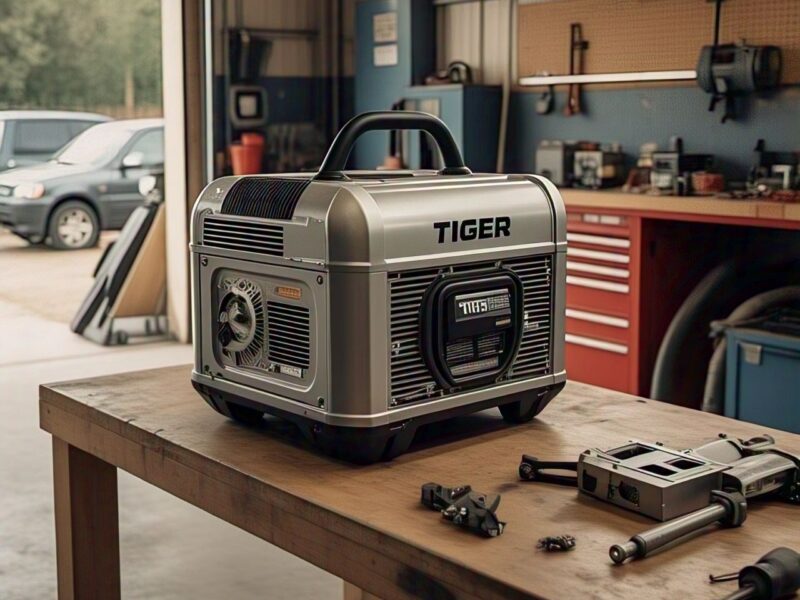If you’re asking how much is a small generator in Nigeria, here’s the straight answer: as of March 2025, small generators in Nigeria cost between ₦25,000 and ₦350,000, depending on brand, capacity, and whether they’re new or UK-used. These compact power sources are a lifeline for many Nigerians facing unreliable electricity. We’re here to deliver a detailed, engaging guide with precise pricing, key features, and buying tips to help you navigate Nigeria’s vibrant market. Let’s dive into the specifics and explore what these small generators offer.
What Defines a Small Generator in Nigeria?
In Nigeria, small generators typically range from 0.65 KVA to 4.5 KVA, earning the nickname “I better pass my neighbor” for their affordability and portability. Brands like Tiger, Elepaq, and Sumec Firman dominate this category, powering essentials like lights, fans, TVs, and small appliances. Their compact size and low cost make them ideal for homes, students, and small businesses across cities like Lagos and rural areas alike. We’ll break down their pricing and why they’re so popular.
Pricing Breakdown for Small Generators
Let’s get to the costs. Prices for small generators in Nigeria vary by capacity, brand, and condition. Here’s the latest rundown as of March 2025, based on current market trends.
New Small Generators: Entry-Level Power
A new small generator starts at ₦25,000 for basic models like the Tiger TG950 (0.65 KVA) and can reach ₦350,000 for higher-capacity options like the Elepaq SV6800 (4.5 KVA). On Jiji.ng, you’ll find Tiger TG1200 (0.7 KVA) at ₦28,000, while Jumia Nigeria lists Sumec Firman SPG3000 (2.5 KVA) around ₦250,000. Specialty stores like Just Fones may charge up to ₦300,000 for premium 4.5 KVA models with extras like warranties.
UK-Used Small Generators: Budget Options
UK-used small generators range from ₦20,000 to ₦200,000. A used Tiger TG950 might go for ₦20,000 on Jiji.ng, while a 4.5 KVA Elepaq could hit ₦200,000 in tech hubs like Computer Village, depending on wear, battery condition, and seller reputation. These are great for cost-conscious buyers willing to trade newness for savings.
Read also: How Much Is a Unit of Electricity in Nigeria? A Detailed Guide for 2025
Where to Buy Small Generators in Nigeria
Nigeria’s market offers plenty of spots to grab a small generator. Online platforms like Jumia and Jiji provide convenience and delivery to places like Kano or Owerri. Physical stores such as SLOT Systems in Lagos or iStore Nigeria in Abuja let you test before buying—a must to avoid fakes. Specialty retailers like Tokka Hub or Phonehubb also stock options with shipping nationwide. We advise sticking to verified sellers for peace of mind.
Factors Affecting Small Generator Prices
Several elements influence small generator costs in Nigeria. The Naira’s exchange rate impacts imported units—currency dips raise prices. Import duties and retailer competition tweak costs, while condition—new or used—can swing prices by thousands. Sales events, like Black Friday on Jumia, often cut rates, so timing your purchase can save you cash.
Key Features of Small Generators
What do small generators bring to the table? Most run on petrol, offering:
- Capacity: 0.65 KVA to 4.5 KVA—powers lights, fans, and small electronics.
- Fuel Efficiency: Basic models like Tiger TG950 run 4 hours on 1 liter.
- Portability: Lightweight, easy to move or store.
- Noise Level: Varies—some brands offer quieter options.
They’re not built for heavy appliances like ACs or fridges, but they’re perfect for essentials.
New vs. UK-Used: Which Should You Pick?
New small generators at ₦25,000+ offer warranties and pristine quality—ideal for reliability seekers. UK-used units, starting at ₦20,000, save money and work well if sourced from trusted sellers like Jiji.ng. For light use or tight budgets, used is a solid choice—just check functionality first.
Comparing Costs: Nigeria vs. Other Markets
Globally, small generators like these might start at $50 (₦79,000), but Nigeria’s prices—₦25,000 to ₦350,000—reflect local demand and import dynamics. In Kenya, a 2.5 KVA unit costs around KSh 25,000 (₦138,000), higher than Nigeria’s equivalent due to market saturation here. Local availability keeps Nigerian prices competitive.
Tips for Getting the Best Deal
We’ve got strategies to maximize your budget. Compare prices on Jumia, Jiji, and SLOT—online often beats physical stores. Haggle at markets like Computer Village for drops of ₦5,000+. Buy during sales—Eid or Christmas on Jumia can slash costs. Check authenticity with serial numbers to dodge counterfeits.
Read also: How Much is Solar Panel in Nigeria? A Comprehensive Pricing Guide
Maintaining Your Small Generator
Proper care extends your generator’s life. Use clean petrol, change oil every 50-100 hours, and store it dry. Regular servicing—around ₦5,000 annually—keeps it humming. Avoid overloading to prevent burnout.
Is a Small Generator Right for You?
If you need affordable, portable power for basics, absolutely. Small generators deliver reliable backup at a fraction of larger units’ cost. They’re ideal for students, bachelors, or small shops in Nigeria’s power-challenged landscape. For heavier needs, consider medium-sized options.
Final Take on Small Generator Costs
So, how much is a small generator in Nigeria? From ₦20,000 for a used Tiger to ₦350,000 for a new 4.5 KVA Elepaq, options abound. Nigeria’s market caters to all—new or used, online or in-store. With this guide, you’re ready to pick the perfect small generator. Will you snag one now or scout a sale?

